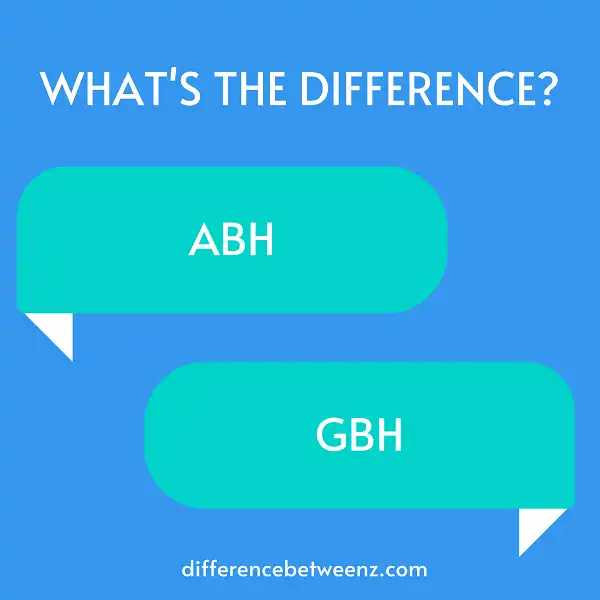There are two main types of bodily harm that are commonly referred to in the law: Actual Bodily Harm (ABH) and Grievous Bodily Harm (GBH). Both of these offences carry severe penalties, but what is the difference between them? In this blog post, we will explore the key differences between ABH and GBH.
What is ABH?
ABH, or Actual Bodily Harm, is a criminal offence which occurs when someone causes another person to suffer physical or psychological harm. The term ABH covers a wide range of offences, from minor assaults such as pushing or slapping to more serious offences such as grievous bodily harm (GBH). The punishment for ABH can vary depending on the severity of the offence, but can include a prison sentence, a fine, or both. ABH is often prosecuted as a summary offence, which means that it can be dealt with by a magistrate rather than a jury. However, ABH can also be prosecuted as an indictment offence, which means that it will be tried in the Crown Court.
What is GBH?
GBH is an acronym that stands for ‘Grievous Bodily Harm’. It is a criminal offence under UK law and is defined as any wound or injury that amounts to ‘really serious harm’. GBH can be caused by a deliberate act, such as a punch or akick, or by an indirect action, such as shaking a baby or driving recklessly. The sentence for GBH can vary from a community order to life imprisonment, depending on the severity of the offence. GBH is considered to be one of the most serious offences on the UK statute books and is taken very seriously by the courts.
Differences between ABH and GBH
ABH Actual Bodily Harm and GBH Grievous Bodily Harm are both serious offences under UK law. ABH is defined as any injury that causes physical or psychological harm, while GBH is any injury that is likely to result in death or serious lifelong injury. The two offences carry different penalties, with ABH typically resulting in a prison sentence of up to five years, and GBH carrying a maximum sentence of life imprisonment. The main difference between ABH and GBH is the severity of the injury caused. ABH can include cuts and bruises, while GBH usually refers to more serious injuries such as broken bones or stab wounds. However, the final decision on whether an offence is ABH or GBH rests with the courts, and prosecutors will consider all the circumstances of the case before deciding which charge to bring.
Conclusion
ABH and GBH are two very different types of crimes, with different punishments. It is important to understand the differences between the two so that you can protect yourself and your loved ones from being convicted of a crime that could have much harsher penalties. If you or someone you know has been charged with ABH or GBH, it is important to seek legal counsel immediately to ensure that your rights are protected.


